News
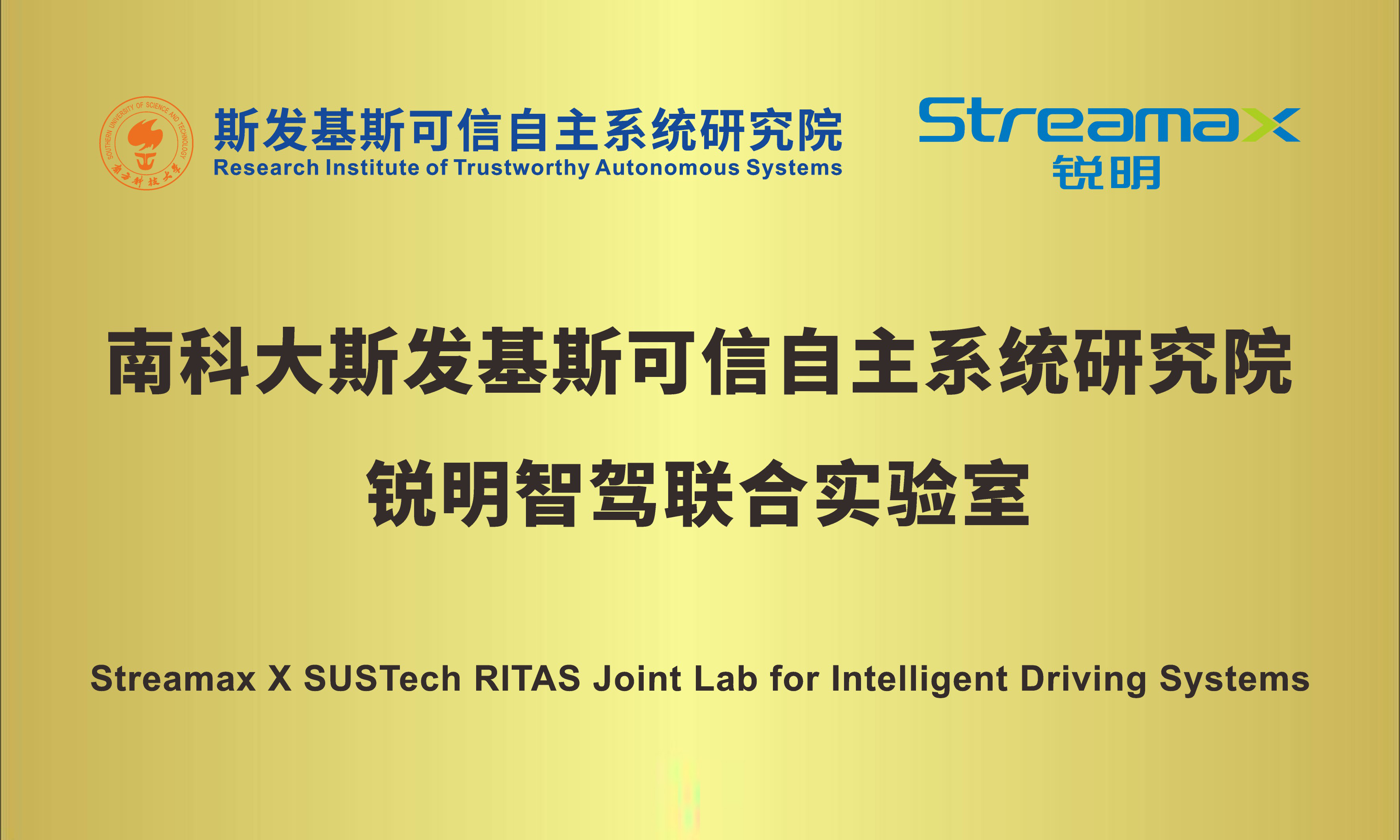
2026-01-16
RITAS Collaborates with Streamax Technology to Establish Joint Laboratory
Recently, the Research Institute for Trustworthy Autonomous Systems (RITAS) at the Southern University of Science and Technology and Streamax Technology Co., Ltd. formally entered into a strategic cooperation agreement, jointly establishing the “SUSTech Streamax X RITAS Joint Lab for Intelligent Driving Systems.” This collaboration marks a critical step for the Institute in advancing the deep industry integration of cutting-edge research in trustworthy autonomous systems and addressing major real-world challenges. Both parties will focus on the commercial vehicle sector, centering their efforts on the continuous validation and engineering implementation in real-world scenarios, jointly committed to promoting the global, large-scale, and trustworthy application of L4-level autonomous driving technology.Building upon the visionary leadership of Turing Award winner Professor Joseph Sifakis, RITAS possesses profound theoretical expertise and influence in computational intelligence, trustworthy software, and autonomous driving. The team led by Professor Qi Hao, who is spearheading this collaboration, has achieved significant results and gained extensive experience in autonomous driving, unmanned aerial vehicles, robotics, and multi-agent control. The team has previously been deeply involved in core autonomous driving technology R&D for internationally renowned enterprises. This joint lab will pioneer a dual-driven paradigm centered on “real-world operational data” and a “verifiable technological framework,” establishing a complete closed loop from capability assessment and system optimization to model replication. It aims to deeply integrate RITAS’s theoretical innovations in trustworthy autonomous systems with the large-scale real-world scenarios and engineering capabilities brought by Streamax Technology, ultimately serving to enhance the efficiency and safety of real-world sectors such as commercial logistics and public transportation.In the future, RITAS will leverage this joint innovation platform to actively participate in defining and resolving fundamental challenges related to trustworthiness, safety, and reliability faced by autonomous driving in real-world commercial scenarios.

2025-12-04
Prof.Joseph Sifakis:How humans can control risks arising from AI
The article authored by Prof. Joseph Sifakis was featured in the China Daily on December 3.
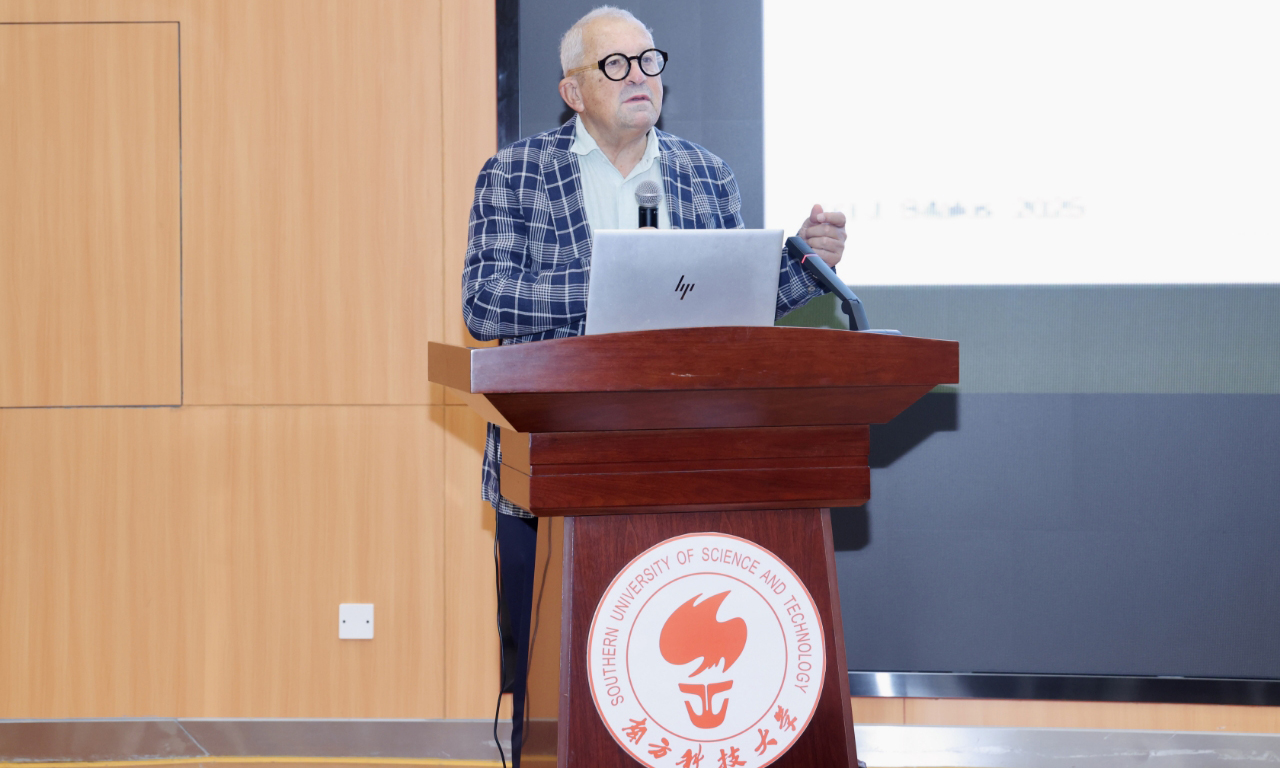
2025-11-02
Turing Award winner Joseph Sifakis discusses bringing AI into autonomous systems
On October 30, Joseph Sifakis, Director of the Research Institute of Trustworthy Autonomous Systems (RITAS), Distinguished Visiting Professor of the Department of Computer Science and Engineering at the Southern University of Science and Technology (SUSTech), and recipient of the Turing Award, was a guest speaker of the SUSTech Lecture Series. He delivered a lecture titled “Bringing AI to Autonomous Systems” to an engaged audience of faculty members and students. Joseph Sifakis is a member of the French Academy of Sciences, the French National Academy of Engineering, the Academia Europea, the American Academy of Arts and Sciences, the U.S. National Academy of Engineering, and the Chinese Academy of Sciences. In 2007, he was honored with the Turing Award by the Association for Computing Machinery (ACM) for his outstanding contributions to model checking theory and practice. In his lecture, he explained that autonomous systems are distributed networks composed of multiple intelligent agents, each pursuing its own objectives while coordinating to achieve collective system goals. Professor Sifakis introduced a development approach based on an agent reference architecture that characterizes autonomous behavior as a combination of independent functional components. He further explored how artificial intelligence (AI) can support the creation of AI agents and multi-agent systems, emphasizing the importance of seamless integration with traditional software. He also analyzed the current technological limitations in this field. He concluded by noting that AI remains in its early stages of development, and realizing the vision of autonomous systems approaching human-level intelligence will require sustained effort over the long term. During the Q&A session, Professor Sifakis engaged with the audience through in-depth discussions and exchanges on a range of topics related to AI and autonomous systems. At the conclusion of the event, Mingwei CHEN, Dean of the College of Engineering; Qi HAO, Executive Director of RITAS; and Ke TANG, Head of the Department of Computer Science and Engineering, presented Joseph Sifakis with a commemorative certificate in recognition of his participation in the SUSTech Lecture Series.
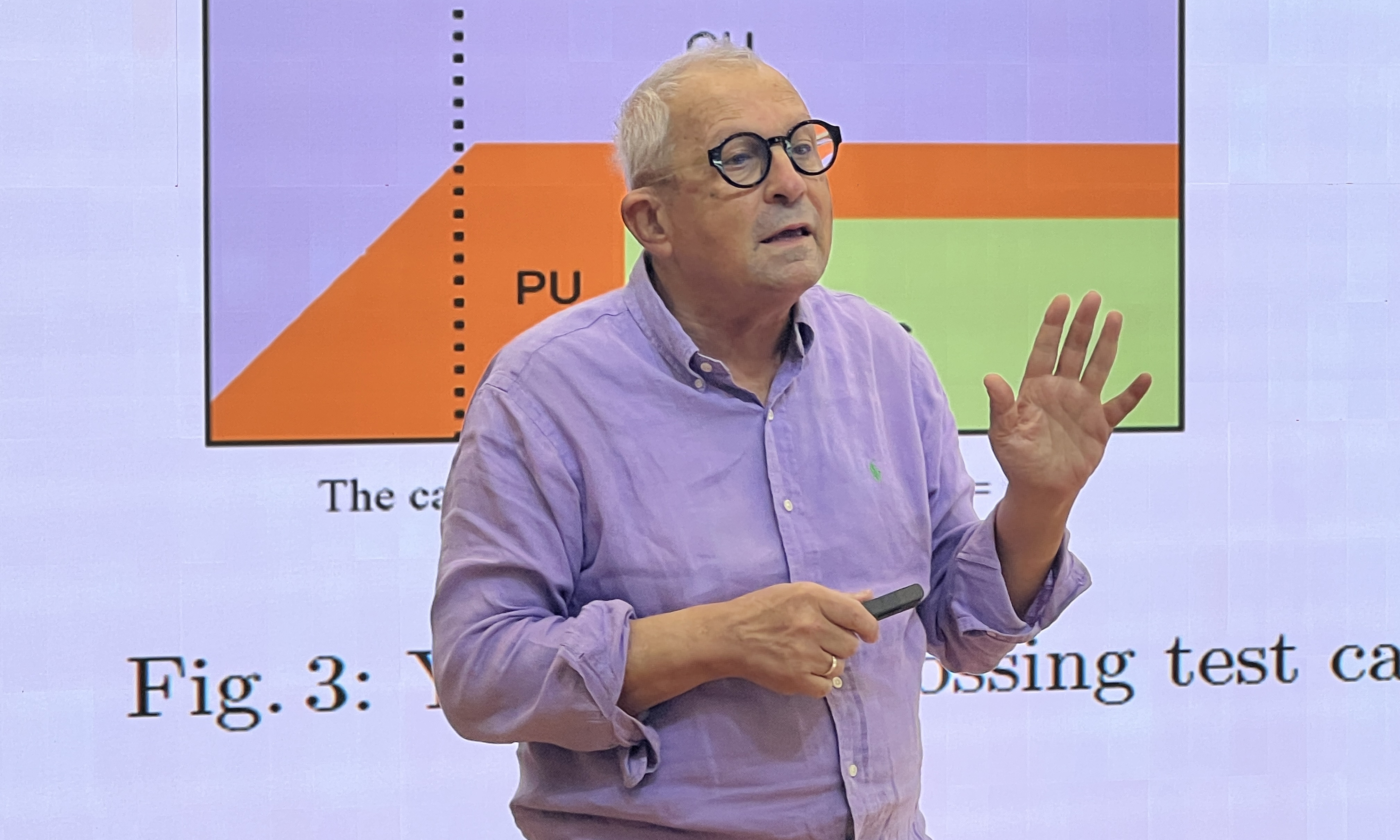
2025-10-23
Prof. Joseph Sifakis:Toward Industrial Artificial Intelligence
The article authored by Prof. Joseph Sifakis was featured in the China Daily on March 21.
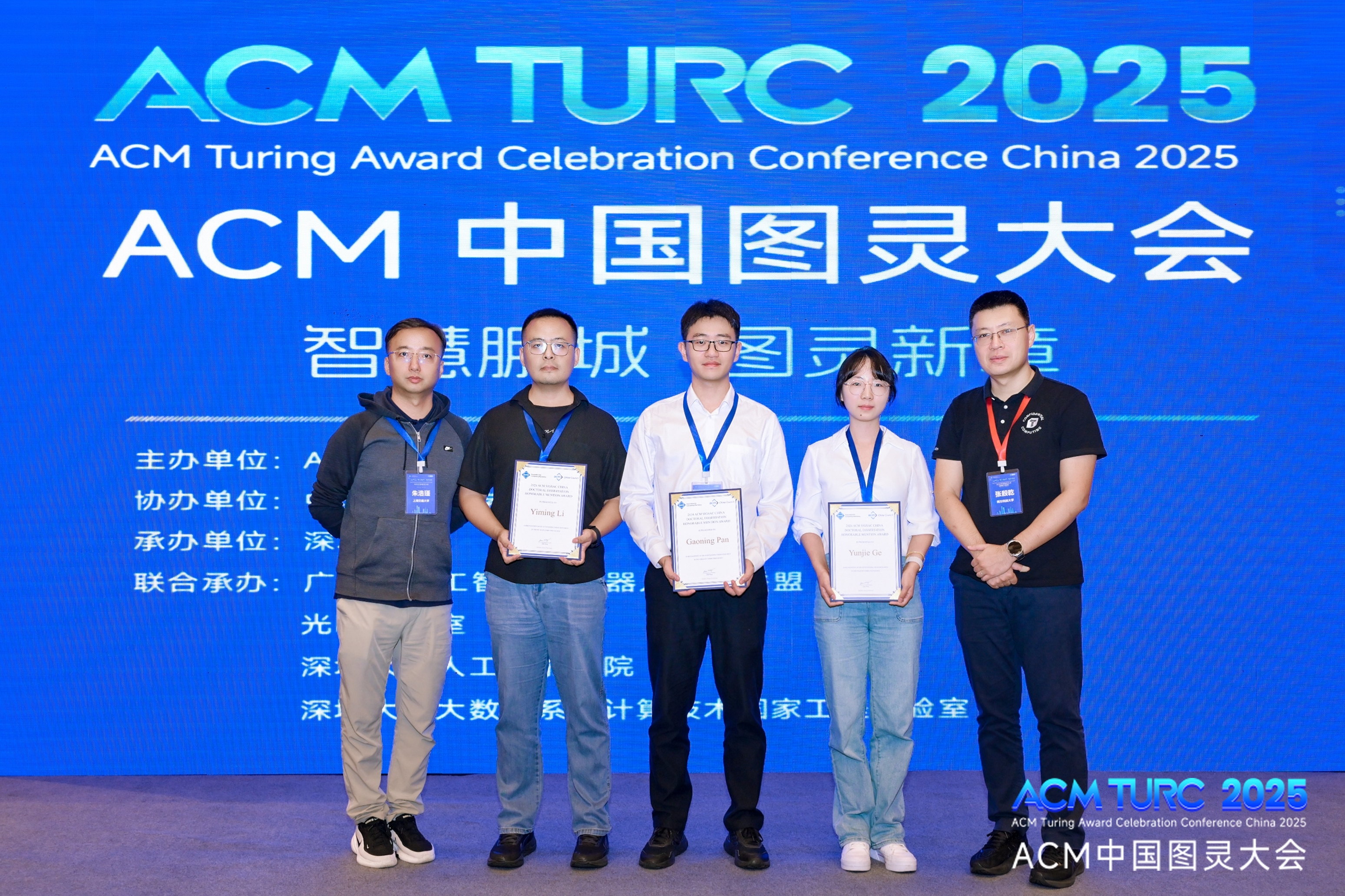
2025-10-14
ACM TURC 2025 – ACM SIGSAC CHINA Successfully Concluded
From October 11 to 12, 2025, the ACM TURC 2025 – ACM SIGSAC CHINA was successfully held at the Hilton Garden Inn Shenzhen World Exhibition & Convention Center. The event was organized by ACM SIGSAC China and co-organized by the Research Institute of Trustworthy Autonomous Systems (RITAS). The institute hosts the Information Security Research Center, which focuses on areas such as Trusted Privacy-Preserving Computing Platforms, Trusted Intelligent Computing Architecture (RISC-V-based), and Software and Hardware Security Vulnerability Analysis. The conference was attended by Prof. Joseph Sifakis (the Director of the Research Institute of Trustworthy Autonomous Systems), Prof. Yinqian Zhang (the Director of Information Security Research Center), Prof. Fengwei Zhang, and Prof. Jianyu Niu. Prof. Ho Chen from the University of Hong Kong delivered the opening keynote titled “AI-driven Fuzzing across the Software Stack.” He systematically explored how AI technologies can be applied to fuzz testing at different levels of the software stack. Prof. Chen categorized the stack into Applications, Libraries, and Compilers, introducing his team’s research and results in each area. He concluded that, despite the need to mitigate the influence of AI “hallucinations,” AI’s strengths in search, optimization, and generation have already significantly advanced fuzz testing across all layers of the software stack. Dr. Hongliang Tian from Ant Group gave a keynote titled “The Compilation-time Security Revolution – New Opportunities for Operating System Architectures.” He discussed how to build safer and higher-quality operating systems, emphasizing that the Rust language uniquely combines speed, safety, and efficiency. Rust, he argued, would be the optimal choice for eliminating most security vulnerabilities at compile time. Based on this idea, he introduced Asterinas, an OS kernel jointly developed by four organizations over three years with 120,000 lines of code. He stated the project’s goal: to create an advanced, open-source, and fully China-originated Linux alternative. Following the keynotes, Zhongjie Ba (Zhejiang University) and Zhe Wang (The Institute of Computing Technology, Chinese Academy of Sciences) also presented academic reports. Zhongjie Ba’s talk, “Large Language Model Content Security: Frontiers and Challenges,” focused on synthetic trace detection and content violation control. Zhe Wang’s presentation, “A Novel Kernel Architecture for Hardware-Software Co-design,” analyzed limitations in the Linux kernel and proposed HAOC, a dual-layer kernel structure leveraging processor privilege-level access control. Panelists included Prof. Xiuzhen Cheng (Shandong University), Prof. Haojin Zhu (Shanghai Jiao Tong University), Prof. Shouling Ji (Zhejiang University), Prof. Wei Wang (Xi’an Jiaotong University) and Prof. Ting Liu (Xi’an Jiaotong University). During the panel discussion, they debated thought-provoking questions such as: "Does openness inherently imply insecurity?","How can AI remain both intelligent and controllable? ","When AI begins autonomous reasoning and decision-making, how can we ensure its behavior aligns with human intentions and safety boundaries?". The day concluded amid lively discussion. The second day began with a keynote from Joseph Sifakis, Distinguished Visiting Professor at SUSTech and Director of the Research Institute of Trustworthy Autonomous Systems, titled “Testing Autonomous Systems – What Really Matters and What Doesn’t.” In his speech, he emphasized that testing for autonomous driving systems must go beyond traditional methodologies. Because AI systems based on machine learning handle unstructured data, conventional formal verification techniques are often inadequate. Prof. Joseph Sifakis proposed a method called Criticality Ordering, which optimizes test-case selection by quantifying scenario risk indicators. His talk concluded that autonomous driving tests should rely on empirically validated scenario coverage, rather than unverified conceptual frameworks. Prof. N. Asokan from the University of Waterloo followed with a keynote titled “Blinded Memory.” He addressed the inherent tension between server-side code confidentiality and client-side data privacy during machine learning model deployment. His team proposed BliMe, an innovative hardware-software co-design that ensures privacy in outsourced computation. Moreover, compared to fully homomorphic encryption and multi-party computation, BliMe demonstrated higher efficiency on a RISC-V processor prototype, while resisting covert channel attacks. It offers a performance-privacy trade-off solution applicable to federated learning and cloud computing. A second panel invited Prof. Wei Wang (Xi’an Jiaotong University), Prof. Hongwei Li (University of Electronic Science and Technology of China), Prof. Xinyi Huang (Jinan University), and Prof. Qi Li (Tsinghua University). They discussed whether AI could act as a catalyst for cryptography research, and what new opportunities it brings to protocol analysis and attack detection. Panelists also shared insights from their own research areas, examining the practical challenges of applying AI in security studies. The workshop concluded with presentations from several ACM Rising Star and Excellent Doctoral Dissertation Award winners: ·Zhikun Zhang (Zhejiang University): Content Security in Large Language Model Generation ·Xiang Li (Nankai University): AI-assisted Logical Vulnerability Detection in Domain Name Systems ·Xin Tan (Huawei Cloud): AI-based Hidden Patch Identification and Industrial Applications ·Jiangyi Deng (Huawei): Voiceprint Security Based on Human-Machine Perception Differences ACM SIGSAC (Special Interest Group on Security, Audit, and Control) is a professional branch of ACM devoted to computer security, auditing, and control. The successful conclusion of this workshop not only enhances research excellence in computer security and related fields but also strengthens SUSTech’s influence in these domains. Serving as a platform for academic and industrial collaboration, the event will continue to foster interdisciplinary synergy between academia and industry.


2025-07-01
Professor Yinqian Zhang from the Information Security Center holds a symposium on "Frontiers of Web3 Technology: New Infrastructure and Value Innovation"
On June 29, 2025, Professor Yinqian Zhang, Director of the Information Security Center at the Research Institute of Trustworthy Autonomous Systems (RITAS) , successfully organized a symposium on "Frontiers of Web3 Technology: New Infrastructure and Value Innovation," Supported by the Shenzhen City Computer Federation (SZCCF) and the Research Institute of Trustworthy Autonomous Systems, the event brought together experts and scholars from academia and industry to share insights and exchange ideas on the latest advancements, typical practices, and future pathways of Web3 technology. The goal was to jointly empower the development of a trustworthy, open, and sustainable digital economy. Figure 1: Group Photo of Participants At the beginning of the meeting, Professor Yinqian Zhang delivered a welcome speech to the attending guests and enterprise representatives. He noted that the committee centers on secure networking and artificial intelligence technologies, with cross-disciplinary synergy as its core mission. It aims to use various events as platforms to build bridges for communication between industry and academia, deepening collective understanding of Web3 technologies. Figure 2: Professor Yinqian Zhang Delivering the Welcome Speech Subsequently, four invited experts and scholars, Butian Huang, Yong Ding, Huizhong Li, and Huawei Huang, delivered keynote speeches. Butian Huang, Founder of Hangzhou Yunphant Network Technology Co., Ltd. presented a keynote speech titled "New Financial Infrastructure Based on Blockchain." Using cases such as the "Currency Bridge", repeated pledging, and selling the same goods to multiple buyers, Butian Huang vividly highlighted current pain points in the financial industry. He pointed out that new financial infrastructure based on blockchain has been reshaping the global process of asset digitization. With further technological maturation and gradual improvement of regulation, it is expected to become a core pillar of the next-generation financial system. Figure 3: Butian Huang Delivering the Keynote Speech Yong Ding, Professor of Guangdong University of Science and Technology, delivered a report titled "Blockchain innovative applications and Real World Assets (RWA) and Stablecoin liquidity innovation.” Professor Ding first shared a series of achievements and progress made by his team on recent blockchain technology breakthroughs. Taking Hong Kong as a primary case, he introduced the definitions, evolution trends, and relevant impacts of RWA and stablecoins. He believes that in the future, stablecoins will achieve breakthroughs in technological innovation and regulatory compliance, and be more widely applied in the RWA market. Figure 4: Yong Ding Delivering the Keynote Speech Huizhong Li, Head of Blockchain Technology Research and Development at WeBank Co., Ltd. presented a report titled "Exploration and Practical Applications of WeBank's Blockchain Technology." Li introduced FISCO BCOS, a domestically developed, controllable open-source platform, and emphasized the importance of open-source to drive innovation. Currently, the development of alliance chains still faces numerous challenges. He hopes that in the future, interconnection among multi-chains and multi-assets can be achieved to fully unlock the value of Web3. Figure 5: Huizhong Li Delivering the Keynote Speech Huawei Huang, Professor of Sun Yat-sen University, delivered a report titled "BrokerChain: A Sharded Blockchain—Research and Practice." Professor Huang introduced the full-process exploration of BrokerChain, from the design of the underlying consensus protocol to the implementation of blockchain system, and further to the development of typical applications on sharded blockchains. He also demonstrated some functions on-site. He stated that he hopes BrokerChain will next step to empower more blockchain financial application scenarios. Figure 6: Huawei Huang Delivering the Keynote Speech Following the four excellent keynote speeches, the symposium entered the panel discussion . On-site, guests and enterprise representatives were connected via video to raise questions, sparking lively discussions on topics such as opportunities and carriers of stablecoins, trusted data spaces, transformation of industry-university-research achievements, and implementation of blockchain technologies. Figure 7: Photos of the Panel Discussion Kai Lei, Executive Member of the CCF Blockchain Specialized Committee, concluded that application is a necessary prerequisite for driving any technology. Through perspectives from industry, academia, and research, this seminar systematically presented the latest breakthroughs of Web3 technology in areas such as new infrastructure and value innovation. The development of Web3 technology requires forward-looking research from academia and practical verification from industry. The Information Security Research Center will continue to connect high-level exchange platforms to support the construction of a trustworthy digital future.

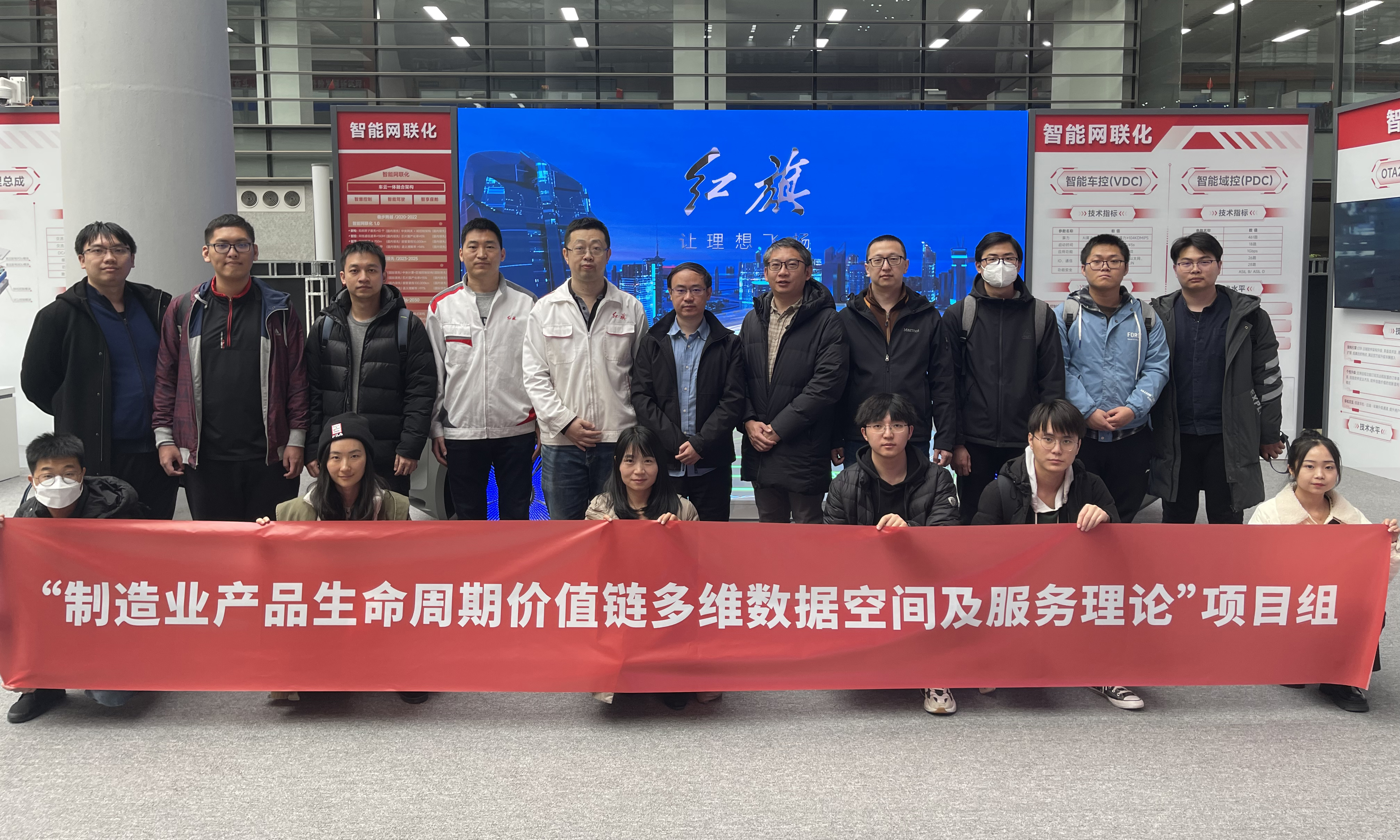
2025-06-12
National Key R&D Program Project Led by Professor Xuan Song of the Smart City Research Center Successfully Passes Acceptance Review with Breakthrough Achievements
Recently, the national key research and development project "Multi-Dimensional Data Space and Service Theory for Product Lifecycle Value Chain in Manufacturing", led by Professor Xuan Song, Director of the Smart City Center at the Research Institute of Trustworthy Autonomous Systems(RITAS), has achieved a series of critical breakthroughs in the field of intelligent manufacturing. The project has successfully tackled core technologies of the "Manufacturing Brain," overcoming critical challenges in the deep collaborative optimization of complex manufacturing value chains. Led by Southern University of Science and Technology, in collaboration with Jilin University, Changchun University of Science and Technology, and China FAW Co., Ltd, the project has carried out nearly three years of joint efforts integrating industry, academia, research, and application. Through this collaborative approach, it has made breakthroughs in multiple key technologies related to product value chain data services and collaborative production, achieving a series of innovative results. The project is closely aligned with China’s strategic priorities for high-quality development in the manufacturing sector. It tackles critical challenges commonly encountered in China’s manufacturing industry, including difficulties in integrating and sharing vast, complex data across the product value chain, low efficiency in coordinating intricate process workflows, and challenges in accurately identifying cause-and-effect relationships. The project has successfully addressed the theoretical challenges involved in constructing a multi-dimensional, collaborative data space service for the product lifecycle value chain. Its outcomes have been successfully implemented at factories operated by China FAW Co., Ltd. Looking ahead, Professor Xuan Song’s team will leverage the research foundation established by the National Key R&D Program to intensify their focus on the critical demands within the national intelligent manufacturing sector. They aim to accelerate breakthroughs in the key core technologies of next-generation artificial intelligence to overcome “bottleneck” challenges in high-end manufacturing, while pioneering AI-driven pathways for cultivating new quality productive forces in the manufacturing. Related reports: GMW.CN: 人工智能驱动下的智能制造新质生产力-制造大脑科研攻关新突破_光明网Xuexi.cn: 南方科技大学:人工智能驱动下的智能制造新质生产力People.cn: http://finance.people.com.cn.nevr.nl/n1/2025/0410/c1004-3224920.html XINHUANET : 人工智能驱动下的智能制造新质生产力-制造大脑科研攻关新突破-新华网
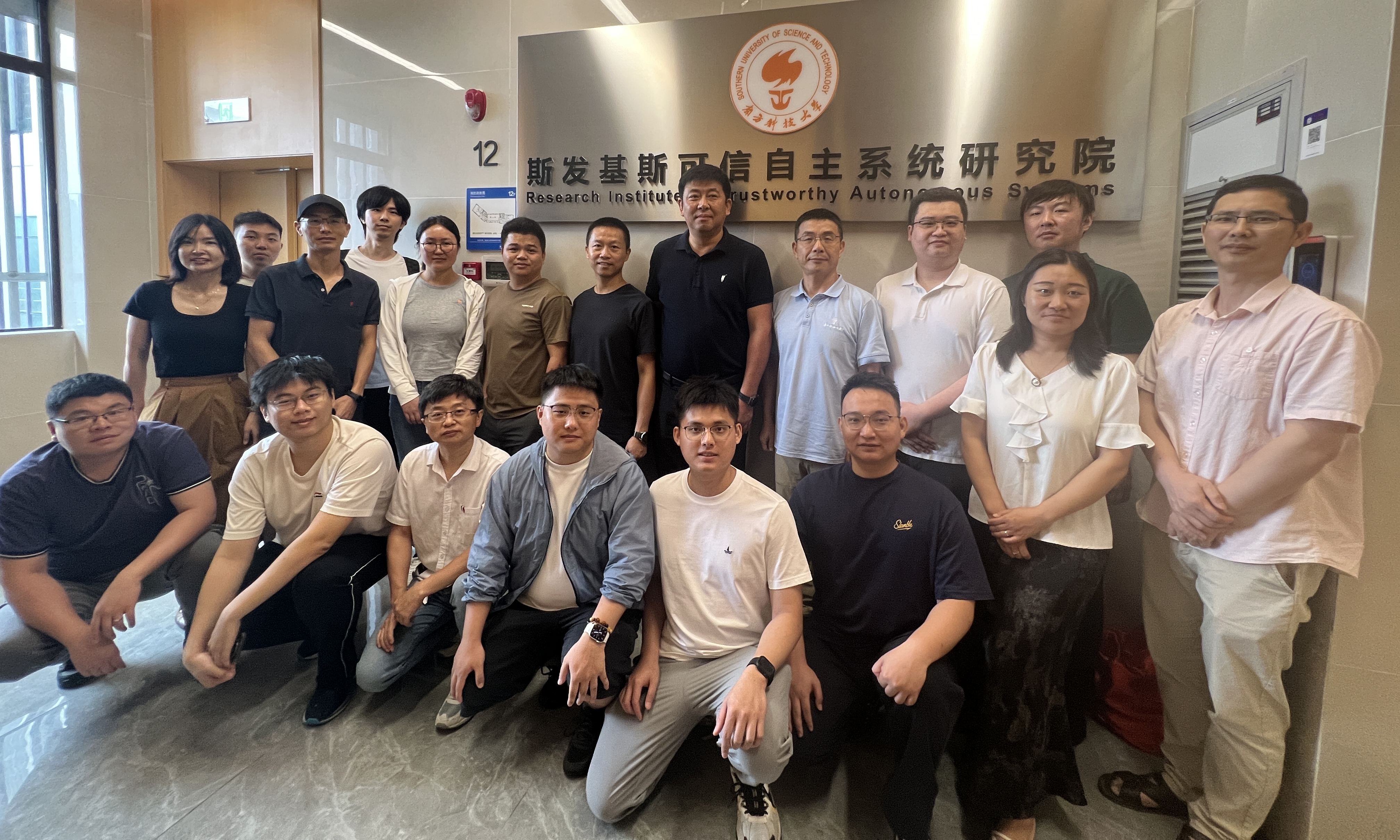
2025-06-07
New Pillar for Trustworthy Systems Research: RITAS Officially Launched at SUSTech Guangming Advanced Research Institute
On June 4, 2025, the launch ceremony for The Research Institute of Trustworthy Autonomous Systems (RITAS) settling into SUSTech Guangming Advanced Research Institute was held in Guangming District.Attendees included Professor Qi Hao (Executive Director of RITAS), Messers Yanhua Zhu and Zhong Han (Representatives of Guangming Advanced Research Institute), Research Associate Professor Dachuan Li, Research Assistant Professor Meiying Zhang, faculty and student delegates, as well as enterprise representatives from DEEPROUTE.AI, Youchuang Future, and Jiateng Technology. Together, they unveiled the plaque commemorating RITAS’s establishment at Guangming Advanced Research Institute. Launch Ceremony Photo Opportunity In his address, Prof. Hao expressed sincere gratitude to SUSTech departments, Guangming Advanced Research Institute, and the Guangming District government for their support. He emphasized that aligned with the university’s strategic research initiatives in Guangming District, RITAS will further concentrate on trustworthy autonomous systems research, address local enterprises’needs, deepen strategic collaborations with high-tech companies, and bolster Shenzhen’s industrial innovation hub.Mr. Zhu and Mr. Han detailed the exhibition hall’s core sections and key developments to visitors, facilitating exchanges with guests on technical challenges and industrial partnerships. Prof. Hao also summarized RITAS’s research progress, achievements, and foundational work, sparking discussions with attendees on scientific challenges, technological demands, and industrial applications. Tour of RITAS Spaces Tour of Exhibition Hall



